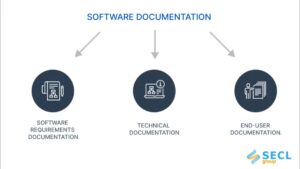In 2023, AT&T, one of the largest telecommunications companies in the United States, faced significant scrutiny due to a massive data breach that exposed sensitive customer information. The company has agreed to pay $13 million in a settlement for mishandling personal data, which has raised concerns about corporate responsibility, data privacy, and the growing threat of cybercrime in an increasingly digital world.
This article delves into the details of the data breach, the consequences for AT&T, the impact on customers, and the broader implications for data security in the telecommunications industry.
The 2023 AT&T Data Breach: What Happened?
In the summer of 2023, AT&T reported a significant data breach that affected millions of its customers. According to the company’s statement, hackers gained unauthorized access to sensitive personal information, including:
- Names
- Addresses
- Email addresses
- Social Security numbers
- Phone numbers
- Account numbers
This breach was particularly alarming because it involved personally identifiable information (PII), which can be used for identity theft, financial fraud, and other forms of cybercrime.
The breach was initially detected in June 2023, and by July, AT&T had notified affected customers and regulatory authorities, including the Federal Communications Commission (FCC). The company launched an internal investigation to assess the scope of the breach and took steps to secure its systems, but the damage had already been done.
AT&T’s Response and the $13 Million Settlement
After the breach was discovered, AT&T quickly acknowledged the issue and took several steps to mitigate the damage. The company issued a public apology and began offering affected customers free credit monitoring services and identity theft protection for a period of one year. AT&T also worked with cybersecurity experts to enhance its data protection protocols and prevent future breaches.
However, despite these efforts, the breach drew the attention of regulators. The Federal Trade Commission (FTC) and the Federal Communications Commission (FCC) launched investigations into AT&T’s handling of customer data. It was revealed that the company had not fully complied with certain data protection regulations, which contributed to the severity of the breach.
In response to these findings, AT&T agreed to a $13 million settlement to resolve the investigations. This settlement includes compensation for affected customers, funding for cybersecurity improvements, and a fine to the FCC for failing to adequately protect customer data.
Why Did the Breach Occur?
Data breaches can happen for various reasons, from insider threats to sophisticated hacking techniques. In the case of AT&T, the exact details of how the hackers gained access to the company’s systems remain somewhat unclear. However, experts have speculated that the breach could have been caused by a combination of factors:
- Weak Security Protocols: AT&T may not have had the necessary encryption and cybersecurity measures in place to protect its customers’ personal data adequately. While the company likely had some level of security, the breach suggests that these measures were insufficient to prevent a determined cyberattack.
- Phishing Attacks: Phishing is a common tactic used by hackers to gain access to sensitive information. It’s possible that hackers used phishing emails or messages to trick AT&T employees into revealing login credentials or other access points to the company’s network.
- Insider Threats: In some cases, data breaches are caused by malicious insiders who have access to sensitive information. While there is no indication that this was the case in the AT&T breach, it is always a potential risk for large companies with many employees and contractors.
- Third-Party Vulnerabilities: Large corporations often work with third-party vendors and service providers, which can introduce additional risks. A weak link in a third-party system could have been exploited by hackers to gain access to AT&T’s network.
The Impact on Customers
For AT&T customers, the breach has significant consequences. The exposure of PII puts affected individuals at risk of identity theft, financial fraud, and other malicious activities. Social Security numbers and account information, in particular, are valuable targets for cybercriminals who may attempt to open fraudulent accounts, take out loans, or commit tax fraud in the victims’ names.
Many customers expressed frustration with AT&T’s response to the breach, feeling that the company did not act quickly enough or provide sufficient compensation for the potential harm caused. While the free credit monitoring and identity theft protection services are helpful, they do not completely mitigate the risks associated with the breach.
For customers who were impacted by the breach, it is recommended to take the following steps:
- Monitor Financial Accounts: Regularly check bank accounts, credit card statements, and other financial accounts for any unauthorized transactions or suspicious activity.
- Place a Fraud Alert or Credit Freeze: A fraud alert can notify credit agencies that your personal information has been compromised, while a credit freeze prevents any new credit accounts from being opened in your name without your approval.
- File Taxes Early: Filing taxes early can help prevent fraudsters from using your Social Security number to file a fraudulent tax return and claim a refund.
Broader Implications for Data Security
The AT&T data breach is just one in a series of high-profile cybersecurity incidents that have rocked the telecommunications and technology industries in recent years. As companies collect and store increasing amounts of customer data, the risk of data breaches continues to grow.
One of the key lessons from the AT&T breach is the importance of proactive cybersecurity measures. Companies that handle sensitive personal information must invest in robust data protection protocols, including encryption, firewalls, multi-factor authentication, and employee training on cybersecurity best practices.
The breach also underscores the need for stronger regulatory oversight. While the FCC and FTC have imposed fines and penalties on AT&T, some critics argue that current regulations do not go far enough to protect consumers from data breaches. There is growing pressure on lawmakers to introduce more stringent data protection laws, similar to the European Union’s General Data Protection Regulation (GDPR), which imposes significant penalties on companies that fail to protect customer data.
The Future of Cybersecurity in Telecommunications
As the telecommunications industry continues to evolve, cybersecurity will remain a top priority for companies like AT&T. The rise of 5G networks, the Internet of Things (IoT), and cloud-based services means that telecom providers are handling more data than ever before, making them prime targets for cyberattacks.
To stay ahead of these threats, companies must adopt a multi-layered approach to cybersecurity. This includes:
- Continuous Monitoring: Regularly monitoring networks for signs of suspicious activity can help detect breaches early and prevent further damage.
- Encryption of Sensitive Data: Encrypting personal and financial information ensures that even if hackers gain access to the data, they cannot easily read or use it.
- Zero-Trust Architecture: A zero-trust security model assumes that threats can come from inside and outside the organization. By verifying every user and device, even within the network, companies can minimize the risk of unauthorized access.
- Collaboration with Government and Industry: Telecom companies must work closely with regulatory bodies, industry groups, and cybersecurity experts to share information about threats and develop best practices for data protection.
Frequently Asked Questions (FAQs)
1. What was the extent of the 2023 AT&T data breach? The breach exposed sensitive personal information of millions of customers, including names, addresses, Social Security numbers, and account details.
2. How did AT&T respond to the breach? AT&T issued a public apology, notified affected customers, and offered free credit monitoring and identity theft protection services for one year. The company also enhanced its cybersecurity measures.
3. What was the settlement amount, and why was AT&T fined? AT&T agreed to pay a $13 million settlement to resolve investigations by the FTC and FCC. The settlement includes compensation for affected customers and penalties for failing to adequately protect customer data.
4. How can I protect myself if my data was compromised? Affected customers should monitor their financial accounts, place a fraud alert or credit freeze, and file taxes early to prevent fraud. Using the free credit monitoring services offered by AT&T is also recommended.
5. What are the broader implications of this breach for the telecommunications industry? The breach highlights the need for stronger data protection measures and regulatory oversight in the telecom industry. Companies must invest in cybersecurity to protect customer data and stay ahead of evolving cyber threats.
Conclusion
The 2023 AT&T data breach serves as a stark reminder of the growing risks associated with handling sensitive customer information in the digital age. While AT&T has taken steps to address the breach and improve its cybersecurity, the $13 million settlement emphasizes the importance of corporate accountability in safeguarding personal data. For consumers, the breach underscores the need to remain vigilant and take proactive steps to protect their information in an increasingly connected world.



